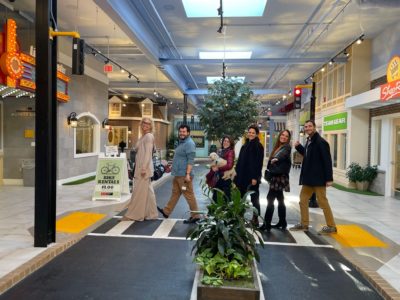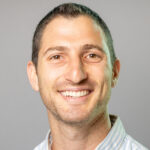
A few weeks ago, our Diller fellow’s coordinator Max Kasler and I had the privilege of getting to know two incredible humans at the Diller Leadership Conference in Boston, our Diller Teen Fellows colleagues from our partner community of Rishon LeZion.
Meyrav Kopito is the Rishon LeZion Diller supervisor. She has worked in the Rishon LeZion municipality for more than 25 years, in the youth department, where she manages the municipal training center and the field of international programs for youth and young adults. She has been our partner for all 16 years that we have run our Diller program. Shir Gil is the Rishon LeZion Diller coordinator. She was a Diller fellow in 2011-2012 through the Beit Shean-Emek HaMaayanot-Cleveland partnership and interned for two additional partnerships.
As we spent the week getting to know each other, we realized that there was so much more we wanted to offer our fellows. Hearing about the amazing work they were doing in Israel and sharing the special sessions that we are running led both sides of the partnership to realize we could be raising one another to new heights. The conversations that began in Boston spoke to the powerful work we’re doing, but it wasn’t until the following week, when we welcomed Meyrav and Shir in Greater MetroWest, that we began to understand the remarkable people with whom we were in partnership.
For Shir it was the first time she had ever been to New Jersey – for Meyrav she was happy to be back after a decade. As they walked the halls in our Whippany campus, sharing stories and anecdotes with our colleagues, you could feel the electricity in the air. It is one thing to know about the work we do in Israel and rest of the world, but it is another thing to be hearing from someone who lives it.
One story that was truly touching they shared spoke about a Greater MetroWest Diller fellow from the very first cohort who, after 15 years, finally “returned home” and made Aliyah. The Israeli fellows that he had gotten to know through Diller reached out to him not only to welcome him to Israel but to invite him to come stay with them until he got situated.
After our time in the office, we took them to see some of what our community has to offer, including Friendship Circle’s LifeTown building, to see one example of how we are bridging the gap of inclusivity. They remarked that not only was it one of a kind but the fact that it took the entire community to make it happen was a testament to the ties that bound us. They promised that when the fellows come to visit in March, volunteering there would be a top priority.
As I think about what it means to be partners, I recall the departing words from Shir, “Before you were just a name on the screen, now I have seen your heart.” The people we work with should not just be lines of text on our screens or in our pockets. We should take the time to sit with them, break bread with them, volunteer with them. It is through these seemingly mundane acts that we find the holiness resting inside each one of us. When we start looking for the relationships that can be found beyond the work, that is the blessing. Diller is just one of the many places that we welcome teens and their families into relationships with one another and Federation.
I was so inspired by my time with Meyrav and Shir, it made me want to continue to connect more deeply with other members of the community. I invite anyone who wants to go beyond just these words to reach out to me at asiegel@jfedgmw.org.

